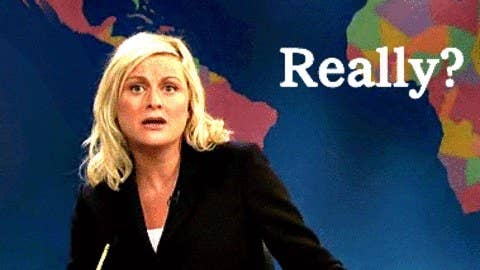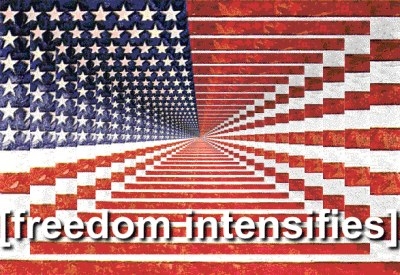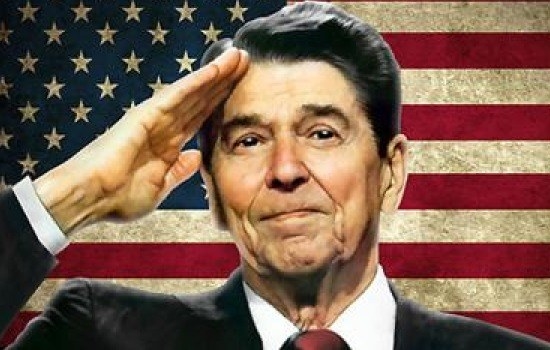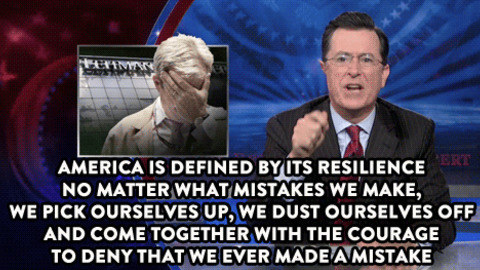In/tolerance: the what...
Religious intolerance is prejudice or discrimination against an individual or group of people based on their religious views or lack thereof. BUT it can also be "not respecting the fundamental human right of other people to hold religious beliefs that are different from your own" (Corrigan and Neal)
Tolerance really isn't much better...

YES! And both are deeply embedded in American Culture.
Let's take a look at our foundation...
The first amendment clearly states, "Congress shall make no law respecting an establishment or religion or the free exercise thereof."
Sounds good, right? Especially when combined with Article VI, paragraph three of the Constitution, "no religious test shall ever be required as a qualification" meaning that, basically, no one can ask your religion when it comes to job interviews, tests, etc.

BUT, surely those can't stand alone in fighting intolerance...
Hence, defining religion.
Religion can be abstract and take many forms, so the need to define it was pressing throughout the establishment of this country, which brought it's own problems. "The notion that religion exists and can be regulated without being defined is a friction at the heart of religious freedom protection" (Sullivan 4). This means that in order to be protected, there was political pressure to define religion.
Defining religion meant "[settling] on the norm, [agreeing] on a definition, and [fixing] it in a convention" (Hurd 50).
What does this mean?
This means a definition has been created and sustained.
This definition is that belief, over practice, is the key element to any religion. Moving forward, this has many implications.
Most world religions have practice-based religions.

So, by defining religion as belief based throughout history, the United States has become based in Protestant Christianity.

Way, way back a wise man named John Winthrop said that the United States "shall be as a city upon a hill," (Winthrop).
This is all fine and good. The US will be a model for others. But if you continue reading his essay, he goes on to talk about the work we (new settlers) have undertaken from God. So a nice metaphor has turned the U.S into God-chosen.
This metaphor has continued...
JFK said "the eyes of all people are truly upon us," and we "must be as a city upon a hill" (JFK). Even without saying it, he evoked religious imagery. As did Reagan, expanding the metaphor to describe in detail his city, "windswept, God-blessed, and teeming with people of all kinds living in harmony and peace" (Reagan).

But what about when it's not all peace and harmony?
So who has experienced it?
Native Americans. Japanese Americans. Those who's religious/customs are considered 'un-American'.
First let's look at Native Americans.
One of their religious practices includes using peyote, a hallucinogenic drug. In Employment v Smith (1990), two native American men were fired from their jobs because of peyote use and couldn't receive unemployment benefits because of the circumstancing of their firing. They tried to argue an impediment of religious freedom, but the practice of smoking peyote does not count in the embedded definition of religion.
Decades earlier...
In the 1920s, Native Americans tried to prevent this issue, and similar religious discriminations. "Pueblo leaders made use of an English-language category that had no parallel in their own language," and defined their cultural practices as 'religion' something that had not previously encompassed their traditions (Wenger).
Now, looking at the Japanese Americans that were interned during World War II.
While the reasons that were cited for their internment was more about national safety, the anti Asian sentiments came, in part, from what was seen as a discrepancy between their religious practices (those of Buddhism and Shinto) and American values (based in Protestant Christianity) (Corrigan and Neal).
Major concern: Ignorance is bliss.

This has international repercussions as well as the domestic ones described.
Because the U.S religious landscape has had such an impact on our policies and subconscious understandings of life and freedom, it has impacted our relationships with other nations, specifically those that have Islam as their national religion.
Our definition of religion has turned us to believe that the right to chose (what you believe) is what real freedom is, because we have, ideally, created an environment where choosing is the norm. This "leaves little room for alternatives in which religion is lived relationally as ethics culture, and even politics but without, necessarily, belief and, as a matter of command, not freedom" (Hurd 51).
What does this mean, globally?
This means that we, being a leading nation, have subconsciously, or consciously, put choice above everything which leads to intolerance towards practice based religions such as Islam (as well as others) and negatively effects the way we view nations that are established as Muslim and can lead to even more Islamophobia in the US.
This also promotes a capitalist agenda, but I'll save that conspiracy theory for another day.

